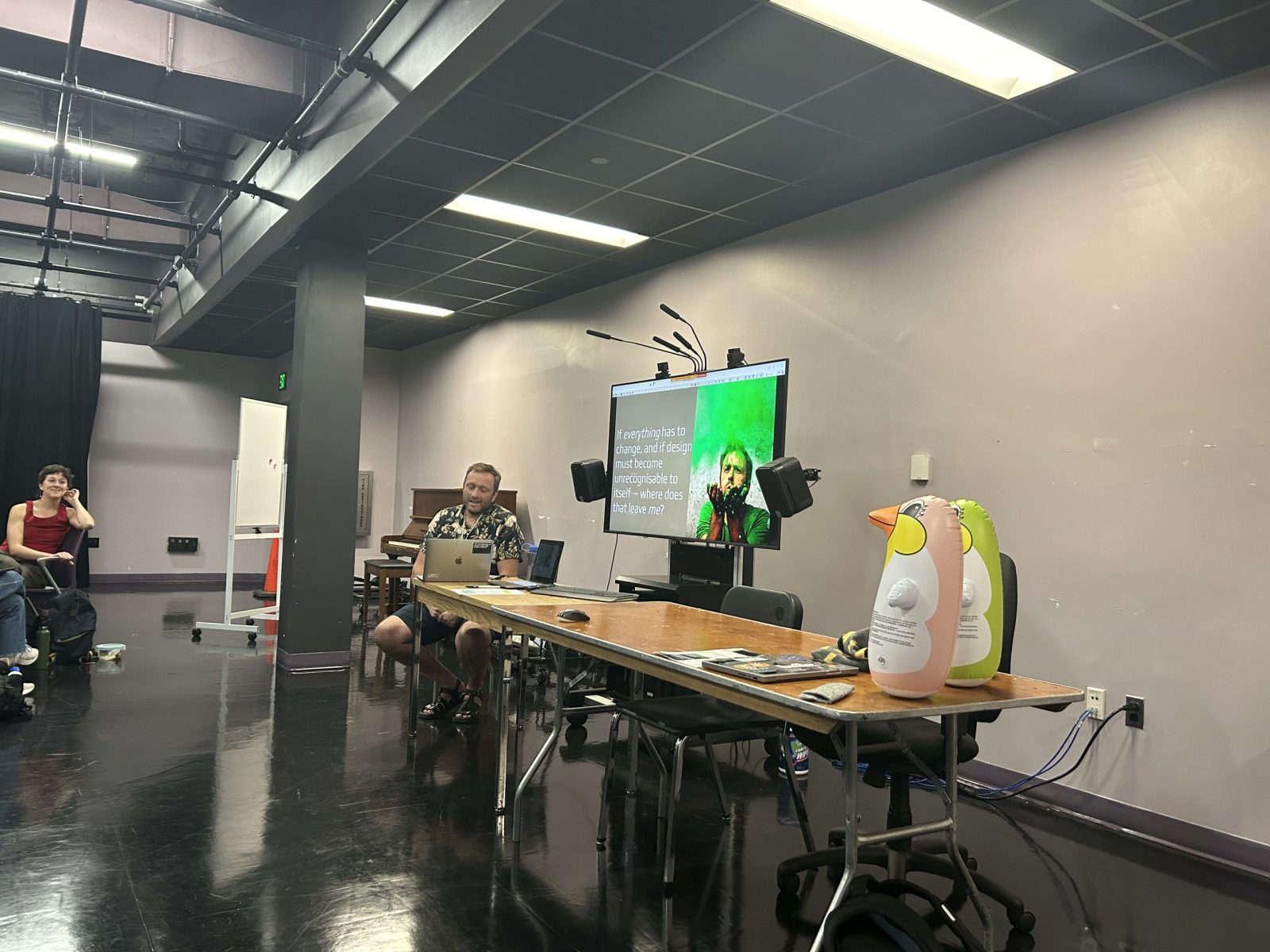I never planned to submit anything for the Design Research Society conference in Boston, because the deadline in the fall of 2023 was just too close to the final deadline for my PhD.
At one point, my lovely colleague Helle Marie sent a kind reminder to the play group at Design School Kolding about the ‘play design track’ she and other good colleagues had been organising. I remember reading her email before getting out of bed, and I dismissed it immediately. I simply didn’t have the time. In what was almost a caricature of creativity, I took a shower and got an idea. At the time, I was stuck writing about how my PhD project and I had ‘drifted’ and transformed. Maybe I could write this paper to inject a splash of WD-40 lubricant into my thesis and get things moving again?
That was the idea, at least, and I spent a couple of days sketching it out: what if a design research project – such as my PhD – tried to always follow the frictions rather than to resolve them?
I was fortunate enough to attend a conversation with Ezio Manzini at DRS. He argued that it is not our job to reduce complexity, but to learn to navigate it, as if we are sailing. Hence, we must always be attuned to the assemblage of forces, the wind, the waters, the sails, the friction, everything.

In a similar spirit, I often quote Anna Tsing when she argues that:
Unpredictable encounters transform us; we are not in control, even of ourselves. Unable to rely on a stable structure of community, we are thrown into shifting assemblages, which remake us as well as our others. We can’t rely on the status quo; everything is in flux, including our ability to survive.
Anna Tsing
In the paper, I wrote about some of all the many times where I didn’t know what I was doing, and where I cautiously, nervously, lingered with that feeling for what felt like eternities. I wrote about all the times where I felt inadequate and unable to know what needed to be known. I asked ‘How could we see what we could not see if we did not change enough to see differently?’ and that was it.
After I submitted the paper, ‘Drifting by friction: Playing with ontologies of design‘, it had already fulfilled its purpose, my PhD-writing was back on track, and I had managed to write about drift and friction in da way that pushed the entire project beyond itself. It was only a surprising, but much welcome bonus that the paper was actually accepted for the conference. Fast forward 8-or-so months, and yesterday, I presented the paper in the ‘Play Design‘ track at DRS, right in the middle of the rather charming campus of Northeastern.
I’m not quite sure how it went, to be honest. To begin, I uploaded the presentation to the wrong folder, and a series of technical issues ensued, where my presentation didn’t work, screen sharing in Zoom was unreliable, the screen flickered, I flickered, a kind volunteer helped me out, and it eventually worked out.
For some reason, the people there were patient and stayed with me, but these things always makes for a confused beginning to any presentation. In what was a very short time span, I spent a few minutes too much talking myself into the presentation, recalibrating, finding my bearings. From there, time was scarce and I hurried a bit too much.
Because of the circumstances, I was a little out of touch with the whole thing, not quite attuned to the mood of the paper, and maybe the larger story was somewhat lost in translation. Regardless, I am just so happy I got the opportunity to write the paper and present the work to a lovely group of people interested in play design.
If there is anything here you want to talk about, do get in touch. Nothing matters more to me than the encounters and conversations flowing between us, pulsating, pushing, and serendipity remains one of my favorite words.
Anyway, my paper is here, you can download my presentation here, including my notes, and should you want to check out my thesis, I just made it available here.

Leave a Reply